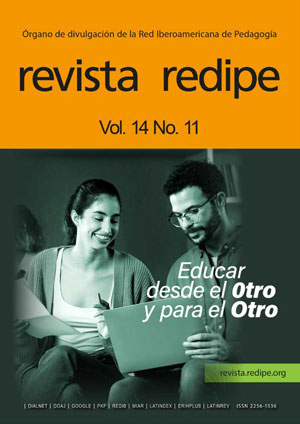Rompiendo barreras en la escritura en inglés: Un enfoque centrado en el estudiante para un caso de necesidades especiales en Colombia
Main Article Content
Keywords
Scaffolding, Difficulties, Errors, Writing, English
Abstract
Writing is a complex activity that involves cognitive and linguistic skills. For students with special needs, writing is also one of the most difficult skills to develop in a foreign language (English). Objective: The objective of this study was to analyze the impact of scaffolding strategies and visual thinking on a primary school student with writing difficulties in a bilingual school in Colombia. Methodology: This research followed a qualitative approach with a single case study. Tests, field journals, observations, and error analysis were used with a student-centered approach to overcome omission and substitution errors. Open and selective coding was used to analyze the data in matrices. Results: The findings of this study reveal that a student-centered approach can help students with special needs improve their English language learning through educational inclusion and overcome writing barriers. Conclusions: This research project highlights the need to understand the many factors that influence the writing process, including teacher training for students with literacy difficulties in the Colombian context.
References
Bachmann, C. (2022). Theory and practice of visual thinking strategies in upper secondary education. Forum Oświatowe, 34(1), 105–123. https://doi.org/10.34862/ fo.2022.8
Benítez Velásquez, T. (2011). Investigating difficulties in elementary school students’ written expression. Zona Próxima, 14, 28– 53. https://doi.org/10.14482/zp.14.505.88
Bereiter, C. (1980). Development in writing. In L. W. Gregg & E. R. Steinberg (Eds.), Cognitive processes in writing (pp. 143– 175). Hillsdale, NJ: Erlbaum.
Berninger, B. W. (1994). Reading and writing acquisition: A developmental neuropsychological perspective. Madison, WI: Brown & Benchmark.
Bradley, K. S., & Bradley, J. A. (2004). Scaffolding academic learning for second language learners. The Internet TESL Journal, X(5). http://iteslj.org/Articles/BradleyScaffolding.html
Bruner, J. S. (1978). The role of dialogue in language acquisition. In A. Sinclair, R. Jarvella, & W. J. M. Levelt (Eds.), The child’s conception of language (pp. 241– 256). New York: Springer.
Canagarajah, A. S. (2005). Reclaiming the local: Language policy and practice. New York, NY: Routledge.
Cassany, D. (2011). En línea. Leer y escribir en la red. Barcelona: Anagrama.
Celce-Murcia, M., & Olshtain, E. (2000). Discourse and context in language teaching: A guide for language teachers. Cambridge: Cambridge University Press.
Cobo, G., Enríquez, L. V., & Ramos Acosta, L. (2021). Análisis de factores sociales que inciden en el aprendizaje de una L2: Revisión bibliográfica. In La investigación formativa y su incidencia en la educación superior. Tomo II (pp. 15–27). Cali: Editorial REDIPE.
Cobo, G., Ramos Acosta, L., & González Valencia, H. (2020). Políticas públicas sobre bilingüismo en Colombia y la formación de docentes de lenguas extranjeras. In M. C. Cano Quintero (Ed.), La formación del profesorado. Teoría y práctica pedagógica (pp. 25–42). Cali: Editorial Universidad Santiago de Cali.
Congreso de la República de Colombia. (2022). Ley 2216. https://www.funcionpublica. gov.co/eva/gestornormativo/norma. php?i=188289
Cook, V. J. (1999). Teaching spelling. University of Essex. http://www.essex.ac.uk/~vcook
Creswell, J. W. (2009). Research design: Qualitative, quantitative, and mixed methods approaches (3rd ed.). Thousand Oaks, CA: SAGE.
Crystal, D. (2012). English as a global language (2nd ed.). Cambridge: Cambridge University Press.
Doelker, C. (1997). Ein Bild ist mehr als ein Bild: Visuelle Kompetenz in der MultimediaGesellschaft. Stuttgart: Klett-Cotta.
Eriksen, T. H. (2007). Globalization: The key concepts. Oxford & New York: Berg.
Flammer, A. (2008). Entwicklungstheorien: Psychologische Theorien der menschlichen Entwicklung. Bern: Verlag Hans Huber.
Friedman, T. L. (1999). The Lexus and the olive tree. New York: Farrar, Straus & Giroux.



